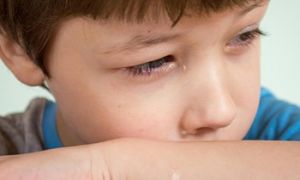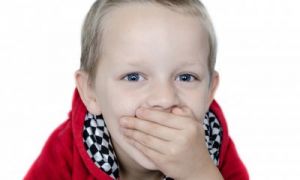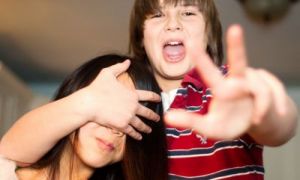Babies use of language at this stage changes so much that it's hard to notice all the key changes that occur. By the end of this period a baby has transformed from non-verbal communicator into an active talker.
Language Development Milestones
From 12 to 18 months
When a baby has said their first word, it is a major step forward as this signifies their ability to use spoken language as a way to communicate meaningfully to others. Babies will recognize a wide range of sounds, even sentences and although cannot respond in full are likely to respond to basic instruction.
Milestones Achieved
- combines language and gestures to express needs
- begins repeats words overheard in conversations
- comprehends and follows simple questions and commands
- able to say first name
- imitates other toddlers
- enjoys rhymes and songs
- shouts at you when your child doesn't like what you are doing
- makes tuneful sounds when hearing familiar music
- listens when other children talk to each other
- understands many more words than can say
- can follow a broader range of instructions
- understanding extends to many more words
- copies lots of things that adults say and gestures that they make
- starts to enjoy simple pretend play, for example pretending to talk on the phone
- consistently uses six or seven words
- spots familiar characters and objects in picture books and tries to name them
From 18 to 24 months
During the initial stages babies will have the ability to name familiar objects and familiar people, combine words together to form phrases and short sentences begin to develop. They will also become a better listener too. This aids in a baby's language development because through listening they are able to hear language spoken. This also enables understanding of instructions and being able to communicate effectively.
Milestones Achieved
- points to objects or pictures when they are named for them
- recognizes names of familiar people, objects and body parts
- uses two-word sentences
- says mostly naming words
- starts to using one to two word sentences
- says several single words
- has extended vocabulary to dozens of words, mostly nouns that describe a general class of objects such as “car” for all vehicles or “house” for all buildings
- develops an understanding of speech is about social contact and communicating basic needs
- can accurately identify objects
- Copy sounds and words a lot.
- experiment with different word combinations
- uses a limited number of sounds in their words – often these are p, b, t, d, m and w
- tackles most sounds but often mixes up or mispronounces certain consonants such as “c” or “s”
- vocabulary is at least 200 words, often combined in short sentences
Babies vocabulary starts to intensify when they listen to conversations around them. A baby will develop an ability to say several words themselves and understand the meanings of hundreds more. Progression in language development continues and they begin to understand that language is not just for the purpose of communicating ideas and feelings – it's a good way to make social contact.


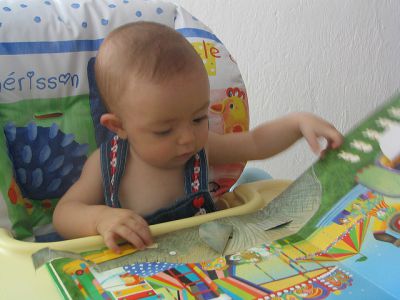
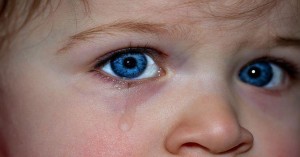
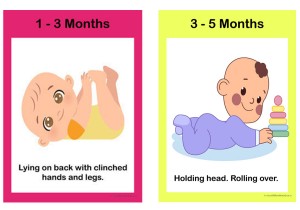
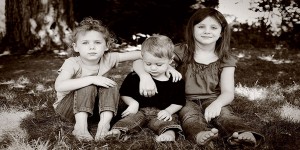
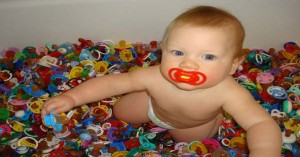
 Toddlers have a greater understanding of the world around them by this stage. Their cognitive development (also known as intellectual development and thinking skills) continues
Toddlers have a greater understanding of the world around them by this stage. Their cognitive development (also known as intellectual development and thinking skills) continues Infants begin to develop trust when parents begin to fulfil their needs. Such as changing an infant's nappy when needed, feeding on request and holding
Infants begin to develop trust when parents begin to fulfil their needs. Such as changing an infant's nappy when needed, feeding on request and holding Beginning at birth the construction of thought processes, such as memory, problem solving, exploration of objects etc, is an important part of an infant’s cognitive
Beginning at birth the construction of thought processes, such as memory, problem solving, exploration of objects etc, is an important part of an infant’s cognitive Toddlers want to do more on their own and do not like it when you begin to establish limits on their behaviour. Tantrums can become
Toddlers want to do more on their own and do not like it when you begin to establish limits on their behaviour. Tantrums can become Your preschooler is now able to focus their attention more accurately and is less influenced by distractions. The intensity of questions increase as your child
Your preschooler is now able to focus their attention more accurately and is less influenced by distractions. The intensity of questions increase as your child John Dewey is often seen as the proponent of learning by doing – rather than learning by passively receiving. He believed that each child was active,
John Dewey is often seen as the proponent of learning by doing – rather than learning by passively receiving. He believed that each child was active, Toddler advance and gains new skills in Gross Motor Development milestones achieved throughout earlier years. Co-ordination and challenges that could not be performed before such
Toddler advance and gains new skills in Gross Motor Development milestones achieved throughout earlier years. Co-ordination and challenges that could not be performed before such Erik Erikson developed a psychosocial theory to understand how we each develop our identities through eight stages of psychosocial development from infancy to adulthood. The
Erik Erikson developed a psychosocial theory to understand how we each develop our identities through eight stages of psychosocial development from infancy to adulthood. The At this point preschoolers begin to interact effectively with others. Play becomes more innovative and organized and “boyfriend” or “girlfriend” begins to emerge. Preschoolers have
At this point preschoolers begin to interact effectively with others. Play becomes more innovative and organized and “boyfriend” or “girlfriend” begins to emerge. Preschoolers have From now, babies begin to identify and respond to their own feelings, understanding other's feelings & needs and interact positively with others. A baby's social and
From now, babies begin to identify and respond to their own feelings, understanding other's feelings & needs and interact positively with others. A baby's social and